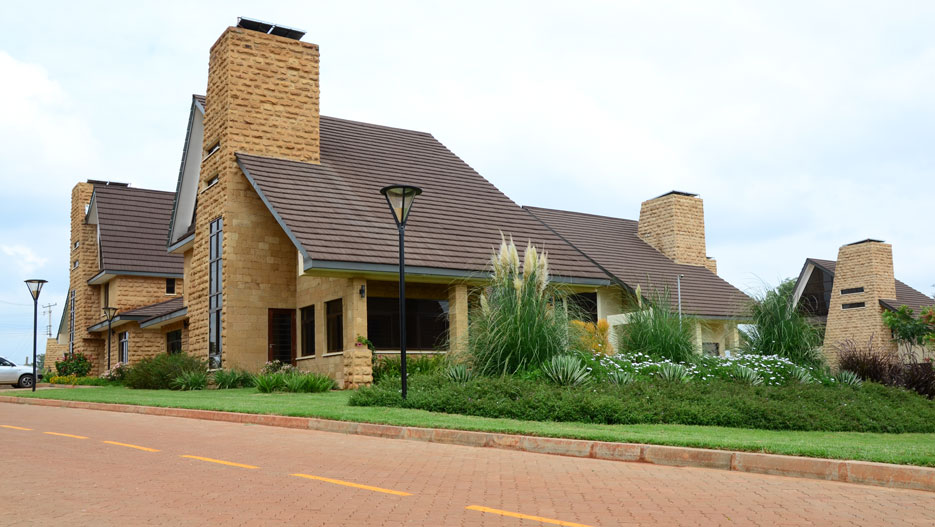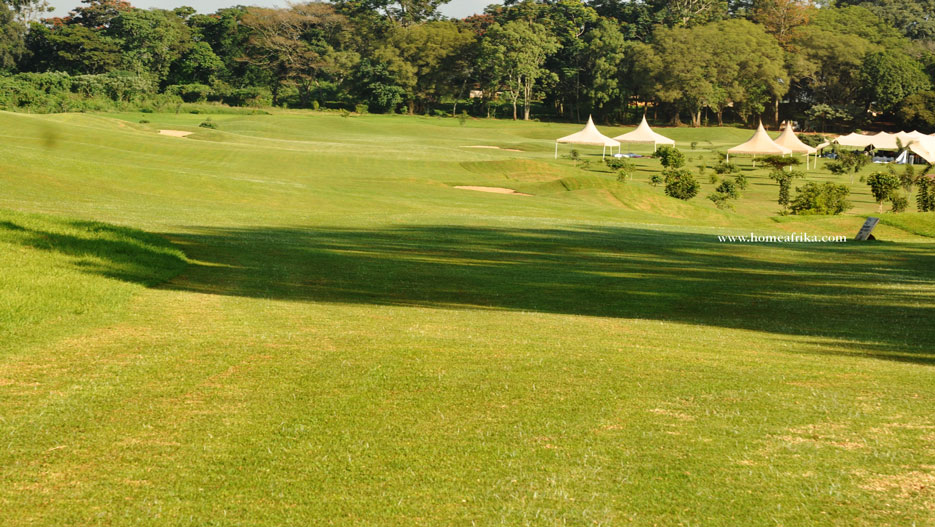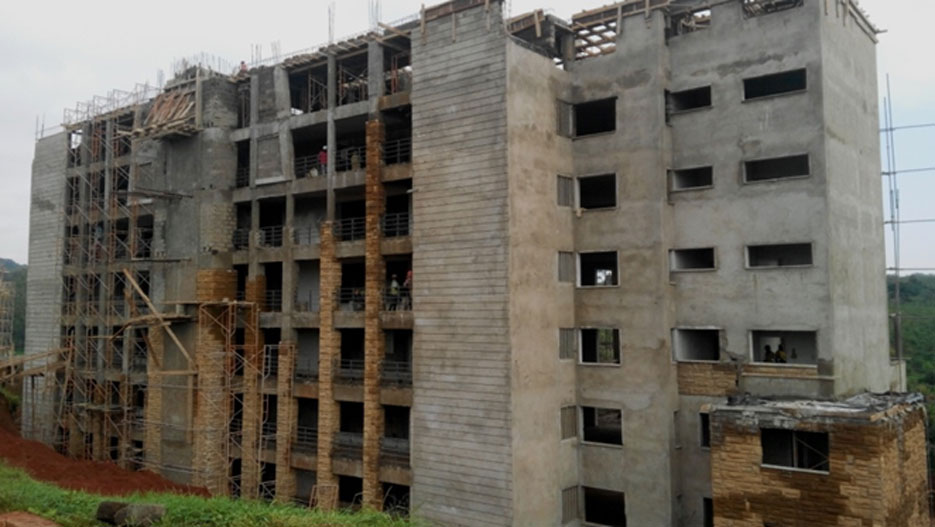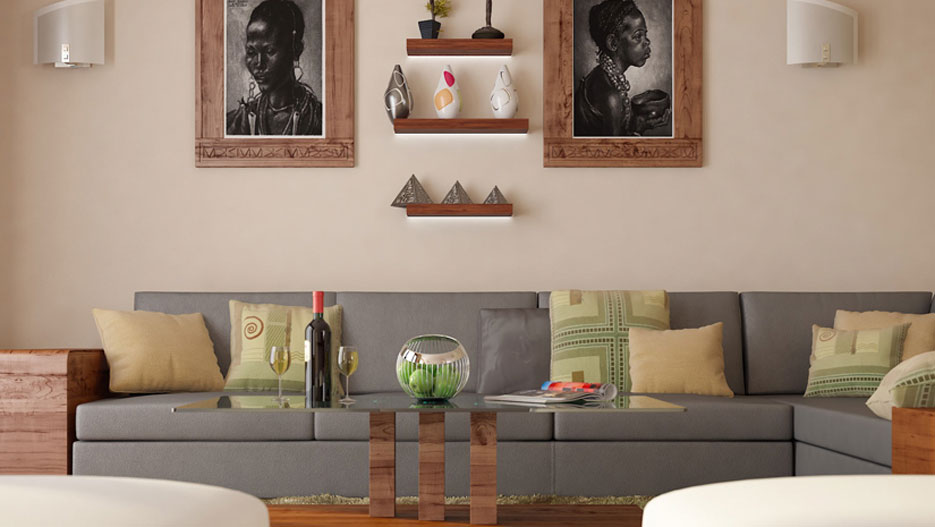Home Afrika: A Property Development Company Providing Homes for All
Dan Awendo talks about the property development sector in Kenya and presents Home Afrika, a property development company incorporated in 2008, founded on key principles of “homes for all” and “economic empowerment”. He discusses strategy and future plans.
Interview with Dan Awendo, Managing Director of Home Afrika
In Kenya, 60% of households are considered to be living in inadequate housing; 150.000 units are required annually, however only 30.000 units are constructed. What is your assessment of the country’s property development sector?
In recent history, Kenya has been building much more units than before. So, even though we are producing 30.000 to 35.000 units a year, we used to build much fewer units than that, maybe half of that number, before 2000. So the property development sector has only recently taken an upward trajectory. There are not many developers in the market, and many of them only focus on medium and high income property sectors, and not on low income sectors, where most of the housing demand exists. Middle to high income property and commercial property sectors are quite well taken care of, but there is still very low development. The main gap exists in the low income sector, because that is where a lot of this 150.000 yearly demand is.
Home Afrika is a property development company incorporated in 2008, founded on key principles of “homes for all” and “economic empowerment”. Can you give us an overview of the company’s history and its main areas of operation and projects?
Our target is to deliver a million houses in Africa in the next ten years. That is an ambitious goal, but I think it is feasible especially if we keep our focus on the affordable and housing sector. Therefore, within the next two to three years, our primary efforts will be directed to completing our existing projects, raise and generate we require, and only thereafter engage in the development and delivery of the 1 million homes.
We started as a group of friends who came together mainly for professional reasons. We were architects, engineers, financial experts and so forth. Individually, we were working in property development, but on a small scale. So we thought of setting up Home Afrika to create much more value and develop much bigger projects, funded by a more capital. That was our dream when we started out. Over time, even though we had spent time developing different projects, we continue to keep our focus on “homes for all”. “Homes for all” means that you are targeting the demand space that is not being covered to date. That demand is in the affordable housing and low income classes. So we continue to reiterate that this is the area we really want to spend our time on. Our initial projects were aimed to help us improve our resource base so that later we could focus on our core business.

Home Afrika seeks to create communities around Africa by providing, quality, sustainable and affordable housing through long term positive societal impact. How would you describe Home Afrika’s philosophy and what makes you different from the competition?
We are certainly not the only ones exploring this market. If you think about the large demand of 150.000 homes a year, you’ll see that this cannot still be done by a single company, because we don’t have the resources, but also because we still don’t have deeply capacitated construction companies. We need partnerships and companies working together to be able to develop this amount of units per year. At the end of the day, our philosophy revolves around providing security for the low income owner, which comes from owning a home. In economies like Singapore, most of the population own their homes, and it is said to increase their productivity by 30% to 40%. That is the kind of productivity catalyst we would like to offer our own people. If we provide homes for all, we provide security for them and improve their capacity to produce, for themselves, for their family and for the society at large. In the next couple of years, we intend to narrow our focus to the affordable housing and low-income housing space.
Could you tell us about the “Go County” strategy you are currently implementing?
When listed on the Nairobi Securities Exchange (NSE) because we needed a platform where we could raise enough money to go into the counties. Kenya’s new Constitution created 47 county governments. We find that those county governments now need to house their people, the government and all the businesses created through this decentralization. So far, the county system has worked very well in Kenya. For a company listed on the NSE, it makes sense to start looking at the larger market, not just Nairobi. So we invested in land banks in Kisumu and Mombasa, where we are putting together housing developments that also provide support for the people, the businesses and the county government itself. In the near future, we expect to do more work, particularly for affordable and low income housing. “Go County” is an important strategy to give us reach and impact not just in the capital cities, but also in other towns in the counties.

What are the most important projects you are working on at the moment?
Right now we have three main projects. The first one is Migaa, an integrated golf estate on a 774-acre land parcel, within Kiambu County. The project features hospitality, commercial buildings, shopping malls, a sports complex and an 18-hole championship golf course. It is now 45% completed. We still have a lot of investment to do, particularly in infrastructure, and we hope to succeed in fundraising b Q1 of 2017 to complete this project. We expect to provide approximately 4.000 households, a place to work, live and play by the end of 2018. The facility we are creating within Migaa aims to provide a comprehensive lifestyle for medium income families. This is currently our largest project.
In Kisumu, we have a 96-acre land bank. The idea is to develop a convention center, a four star hotel and housing estates to facilitate accommodation. In this region we have a large NGO population, so conferencing is a big requirement, and yet the facilities are very limited. We want to take advantage at that opportunity and provide facilities to them and for the entire western and lake region. We have only just started this project, so we are looking for both local and international partners who joint venture with Home Afrika from a resources and technical involvement to bring success to this project.
The third project is a 21-acre land parcel first row to the beach in Tiwi South Coast. We intend to build a convention center as well while also developing holiday residential facilities. We are looking for investors to joint venture with Home Afrika for both the convention center and the holiday homes. We believe that if we raise enough capital we will be able to complete this project in three (3) years.
Does Home Afrika do any type of actions in terms of CSR?
Yes, we have Home Afrika Foundation, which was set up about five years ago because we realized that a company that profits from a market must also invest in the social projects for the society in which it operates. Initially, the foundation work has been education. We have many young bright boys and girls who finished school successfully but don’t have support to go to the next level. We support, for example, a school in Kiambu and we hope, as the company’s resources continue to grow, to go on investing in education.

What are the main challenges to be faced by Home Afrika on a daily basis and what is being done to overcome these challenges?
We are currently facing three main challenges. We have had a negative perception in the market about how the company is run, what it represents and what it is doing, particularly concerning governance and meeting obligations. Most of these have now been sorted out. We changed our governance structure to gain more credibility in the market and we changed the management structure as well, to improve the commercial side of our business. Since then, our performance has significantly improved. That is relatively resolved now. We are happy that the market is starting to see us in a different light. Secondly, access to capital in order to complete our projects has been a major challenge. We have 6 billion shillings worth of land bank that is currently in our balance sheet. We have to inject new capital to transform it into completed projects. That challenge will only be resolved by seeking new capital partners. We have already spoken to quite a number of local and international investors. We are now developing information memorandum and financial data that will be reviewed by these investors. We are hopeful that by the end of the year we will be signing a term sheet with prospective investors. Another issue we have to deal with right now is the market’s perception that the company is being mismanaged and that our share price is representative of the company’s value. We have taken the view to educate the market to understand our financials better to help them see the significant underlying value that cannot be seen in them due to reporting requirements under International Financial Reporting Standards (IFRS). We are hopeful that, as the investor market gets better understanding of our business and its financials, they will be more interested in buying, not disposing our shares. These are the three main challenges we are dealing with and I am happy that so far there is a lot of traction and progress in how they are being resolved.
In terms of expansion, do you plan on operating outside Kenya and possibly take over the East African market?
Yes, we do have expansion plans in our ten-year strategy plan, and we actually want to be in most of sub-Saharan Africa. We also realize that it takes a lot of resources, network and partnerships to engage in those markets. Our vision is that within the next three to five years we would like to focus on Kenya and its surrounding countries of the East African community, so that we can create a success case that we can replicate in the rest of Africa. It is very important to come up with a standardized model that suits the East African Community countries including Uganda, Tanzania, Ethiopia and Rwanda. Without a standardized model, we believe we may not succeed in the other countries. We want to spend the next three to five years building that franchise. Then, in the next ten years, our intention is to go to the rest of the Africa.

What is your vision for the future of Home Afrika in the next 2/3 years? What would you like to have achieved by then?
We would like to deliver a million houses in Africa in the next ten years. Our focus for the next two to three years is to complete our existing projects, as opposed to taking on new projects. Fundraising will be crucial in this next year in order to facilitate financing for the completion of the projects, that would mean between 5,000 and 10,000 new homes. Then, going to the low-income and affordable housing market, we expect to deliver many more homes in a shorter period of time.
Do you foresee any evolution or changes in the housing development sector in the next few years?
Two areas will change significantly in the next few years. One is the accommodation and acceptability of the use of technology in developing housing units. Kenyans have been very slow at taking up precast built homes and other kinds of building technology. As new units are built, and faster, people will find them affordable, think they are robust enough and take them up faster. Another thing that will happen is that the financing systems and mortgages are going to change dramatically. One of the reasons why there are very few mortgages in the market are pricing and financing structures. It is impossible to have rates of 21% rates in mortgages, particularly for low income owners. As long as you have house prices varying KES. 5 million and KES. 20 million for low income class, it will be difficult for people to afford houses like that. We intend to look at how we can engage in that market offering good technology and mortgage facilities that enable buyers to afford them. Africa is rising, and we have a very large middle income group coming into the market and an increase in the low income group which is becoming a middle income group. We also see much accountability opening up in the markets we are interested in. All this is pushing rural to urban migration that will lead to significant demand for houses in the next ten to 30 years. We want to be leaders in the provision of affordable housing. We want to be a relevant party in narrative, making sure Africans are housed so they can become more productive.